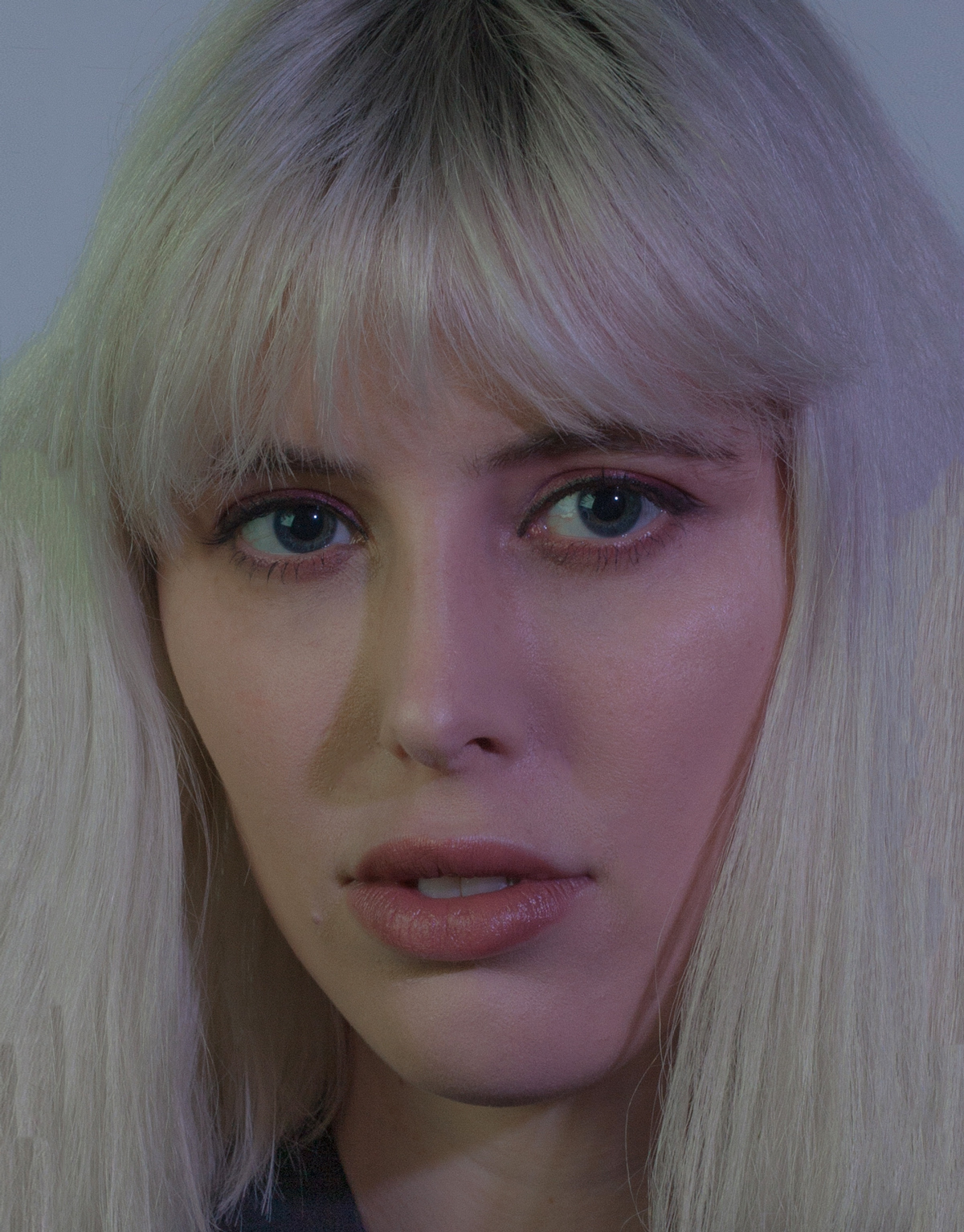Phoebe Twigg — alias Ptwiggs — doesn’t shy away from her emotions. The Sydney electronic producer, who makes glitchy, multi-layered songs that could soundtrack a club night on the eve of doomsday, says that it’s catharsis. It’s how she gets all those feelings out.
“I started a band with my first boyfriend when I was 17 – we just started experimenting, we would record cheese-graters and we would do it all in Ableton,” says Twigg, whose new EP Purge is out with Deep Seeded Records, a Sydney label whose roster reflects the community of underground electronic artists that’s sprung up in the city’s post-lockout years (we’re premiering Lara Dies, a song from the EP, on Soundcloud today). “None of my family are musicians but I’ve always loved singing. I was in a few bands in high school, mostly folk and ambient kind of stuff. Now, I’m essentially a laptop producer but if I’m not making music, I’m painting, drawing and writing poetry. Whatever it takes to [express] myself.”
Over ginger beer at the Old Clare Hotel, Twigg, tall, with white-blonde hair and a habit of thoughtfully crafting her sentences, tells me that her own musical universe is indebted to the 90s. Sure, it feels the world is freshly inthralled with burgundy lipstick and vintage Adidas, but for Twigg, the decade represents something more, a certain creative sensibility that looks to the future even as it borrows from the past.
“When I was growing up, I loved trance and Hi-NRG — it was so easy to gravitate towards that as a young person and I just wanted to be a modern girl,” says Twigg, who spent May in Europe, playing clubs in Budapest, Moscow and London (her biggest fan base is in Russia). Instead of Facebook, she maintains a VK — a Russian social networking site that sees users skip selfies and holiday photos to communicate via images and tracks. “I also listened to so much shoegaze and post-punk. I originally started out making ambient music but when I was trying to replicate shoegaze on my laptop, I decided not to [work] against the software. Because I could map out the rhythms, I realised that I could make music that was club-friendly but keep the post-punk elements. For me, post-punk is about angst and a sense of disconnect but the 90s was so forward-looking, so focused on the future.” She pauses before returning to the idea. “You know, I really think that we’ve lost that.”
The 90s also helped spark a tradition of female auteurs, electronic or otherwise, who produced their own music and created their own visual language. Think Missy Elliot’s kinetic music videos or Kathleen Hanna’s slogans or Björk in that swan dress — a lineage that’s informed everyone from Grimes to FKA Twigs. Scroll through Twigg’s Instagram and you’ll find roses, dragons and corsets interspersed with Japanese anime, a shot of herself wearing ultra-wide, JNCO-style jeans. If she has an aesthetic, it’s “Nineties Rave Renaissance.” If she has a style hero, it’s Arca — the talented Venezuelan producer who’s known for his apocalyptic imagery. The Björk collaborator is also a benchmark for her artistic ambitions.
“I’ve always felt that aesthetics go hand in hand with music,” says Twiggs, whose favourite Australian electronic artists include Air Max ’97, Jikuroux and CORIN. “Fashion is also a really important creative outlet for me. Before I studied audio engineering, I studied fashion design but decided that it wasn’t quite right. Arca cements his aesthetic so powerfully and it really takes his music to another plane. When [Arca and Björk] work together, they create such amazing things. It’s challenging and that’s something I’ve always admired in every form of art. There’s something powerful about listening to something that unsettles you, something that makes you think.”
If you’re a young, female producer, you’ll probably draw patronising questions (I’m careful not to ask them). Twigg isn’t a stranger to imposter syndrome: “for a long time, I felt intimidated to tell people that I was making my own music — it took a lot of sitting at home and honing my skills to feel confident enough to say, ‘this is what I want to do.’ These days, she often rises at 3AM to record her tracks. “There’s a pulse in the air when everyone is asleep and it’s worth suffering the next day if you’re making something amazing. 3AM is my time,” she laughs, adding that she’s almost finished her second EP. “When I was making Purge, I felt like I had a lot of emotions — it was like giving birth. It’s my work. And even if people don’t love it, I felt like I just wanted to get it out.”
credits
Text Neha Kale
Photography Ellen Virgona
